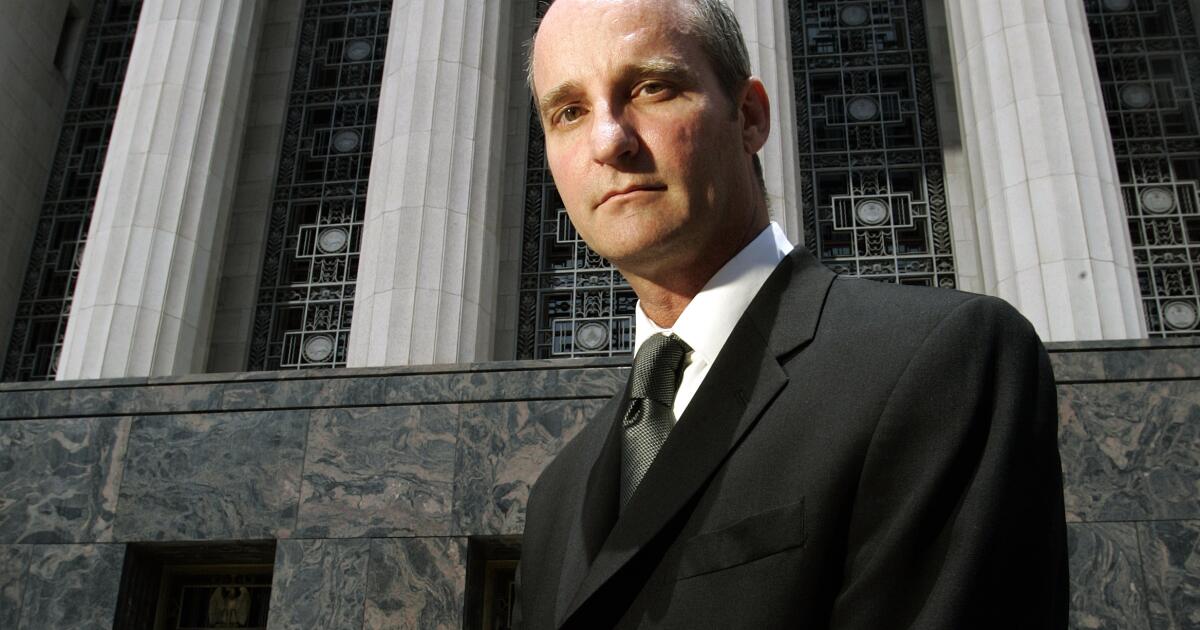The article honestly doesn’t answer the headline like at all, but the story of the federal government hounding this guy for over a decade for a bullshit weed case is wild
Prosecutors refused to drop their criminal case against him even as marijuana became fully legal in California and 23 other states. They refused to let it go when Congress forbade the Department of Justice from using its funds to criminally prosecute medical marijuana activities that were consistent with state law.
Prosecutors have pursued Lynch’s case — which involves conflicting state and federal marijuana laws — through appeals and delays and criticisms that they were spending too many resources on a case that meant so little.
“Twenty-five percent of my life,” Lynch, now 61, said in a Southern drawl at a hearing in downtown Los Angeles this month.
When federal authorities launched their probe in 2007, George W. Bush was in the White House and Lynch was a respected businessman in Morro Bay with a three-bedroom ranch-style house in nearby Arroyo Grande.
These days, he struggles financially, lives in a single-wide trailer on his mom’s property in New Mexico and strains to remember the details of the marijuana operation that got him in so much trouble.
…
In July 2022, one of Lynch’s new federal public defenders, Rebecca M. Abel, filed a motion to stop the government from spending more money on prosecuting the case. She included three expert declarations to show the dispensary was in strict compliance with state law in effect at the time.
Although the government had not backed down, its priorities seemed to shift over the last year. Kowal blew deadlines. Missed a court hearing. Was almost sanctioned.
In a September 2023 declaration to the court, in response to threatened sanctions for not filing a response to Lynch’s motion, Kowal said it “was an extremely slow and difficult project” and noted that he’s “always been a slow writer.”
Kowal declined to comment for this story.
In November, Abel filed a motion to dismiss the case, noting that the government had still not opposed the motion to enjoin spending. She later told the court, “I didn’t know how else to get the federal government to pay attention to Mr. Lynch.”
[Bolding added]
Prosecutor: “She can do that?!” Judge: “Rules don’t say a dog can’t play basketball!”
Four days before a Jan. 22 hearing — in which each side would be able to present evidence on whether Lynch had complied with state law — Kowal asked for more time. In a declaration to the court, he said he misunderstood that the evidentiary hearing would proceed as scheduled amid the motion to dismiss filed by the defense.
”…the government will not be able to effectively go forward with an evidentiary hearing on the dates scheduled, given again, that it needs additional time to prepare the government’s response,” Kowal wrote.
Wu denied the request.
…
Before the office responded, yet another filing landed late Tuesday afternoon — the 569th item in the docket.
The government had offered Lynch a plea deal. Lynch said yes.
He agreed to plead guilty to misdemeanor possession of marijuana. Prosecutors would recommend a time-served sentence, meaning Lynch wouldn’t spend a day in prison.



Yet another example of how dragging out court cases penalizes the defendant by hanging the specter of future prosecution over their head to force a plea deal. In a perfect world the government offering the plea deal after all this time should have prompted the judge to dismiss the case due to the lack of a speedy trial.